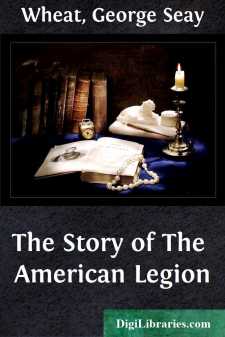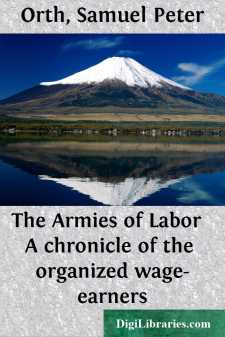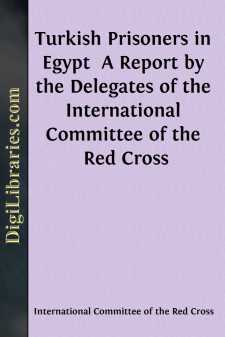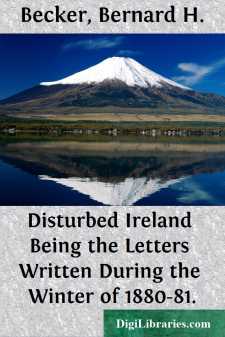History
- Africa 30
- Americas (North Central South West Indies) 50
- Ancient 68
- Asia 58
- Australia & New Zealand 8
- Canada 41
- Caribbean & West Indies 1
- Civilization 20
- Eastern Europe 12
- Europe 310
- Expeditions & Discoveries 60
- General 77
- Historical Geography 1
- Jewish 9
- Latin America 3
- Medieval 8
- Middle East 13
- Military 248
- Revolutionary 8
- Study & Teaching 5
- United States 353
- Western Europe 56
- World 13
History Books
Sort by:
CHAPTER I THE CONTINENT IN PRE-SPANISH DAYS The discovery of South America stands as one of the most dramatic events in history. From the time of its occurrence until the present so deeply has this event impressed itself on men's minds that the previous state of the Continent has been a somewhat neglected topic. The Incas and their civilization, it is true, have attracted no small share of...
more...
by:
Anthony Hamilton
The nearer the Chevalier de Grammont approached the court of France, the more did he regret his absence from that of England. A thousand different thoughts occupied his mind upon the journey: Sometimes he reflected upon the joy and satisfaction his friends and relations would experience upon his return; sometimes upon the congratulations and embraces of those who, being neither the one nor the other,...
more...
CHAPTER I LATTER WAR DAYS IN FRANCE I believe that the army of to-day, when it goes back to citizen thinking and citizen acting, will be capable of so contributing to the commonwealth of the United States as to change the character of the whole country and lift it up to a higher plane. BISHOP BRENT, Senior Chaplain, A.E.F. Paris, March, 1919. On a midsummer morning in 1918, ambulance after...
more...
PREFACE At the suggestion of the Cambridge Philosophical Society, the Syndics of the University Press decided in March, 1908, to arrange for the publication of a series of Essays in commemoration of the Centenary of the birth of Charles Darwin and of the Fiftieth anniversary of the publication of "The Origin of Species". The preliminary arrangements were made by a committee consisting of the...
more...
CHAPTER I. THE BACKGROUND Three momentous things symbolize the era that begins its cycle with the memorable year of 1776: the Declaration of Independence, the steam engine, and Adam Smith's book, "The Wealth of Nations." The Declaration gave birth to a new nation, whose millions of acres of free land were to shift the economic equilibrium of the world; the engine multiplied man's...
more...
CHAPTER I — FRANCE IN THE FIFTEENTH CENTURY. 1412-1423. It is no small effort for the mind, even of the most well-informed, how much more of those whose exact knowledge is not great (which is the case with most readers, and alas! with most writers also), to transport itself out of this nineteenth century which we know so thoroughly, and which has trained us in all our present habits and modes of...
more...
by:
Louis Raemaekers
Introduction Louis Raemaekers will stand out for all time as one of the supreme figures which the Great War has called into being. His genius has been enlisted in the service of mankind, and his work, being entirely sincere and untouched by racial or national prejudice, will endure; indeed, it promises to gain strength as the years advance. When the intense passions, which have been awakened by this...
more...
1. Heliopolis Camp. (Visited on January 2, 1917.) This camp is laid out quite close to the new city of hotels and villas founded in 1905 under the name of The Oasis of Heliopolis. The camp site is 134 feet above the level of Cairo. Strength.—3,906 Turkish non-commissioned officers and men. 3 Turkish soldiers of the Sanitary Corps. 2 Armenian doctors (officers in the Turkish Army). The camp is...
more...
AT LOUGH MASK. Westport, Co. Mayo, Oct. 24. The result of several days' incessant travelling in county Mayo is a very considerable modification of the opinion formed at the first glance at this, the most disaffected part of Ireland. On reaching Claremorris, in the heart of the most disturbed district, I certainly felt, and not for the first time, that as one approaches a spot in which law and...
more...
Two very different persons died towards the latter part of this year. The first was Lamoignon, Chief President; the second, Ninon, known by the name of Mademoiselle de l'Enclos. Of Lamoignon I will relate a single anecdote, curious and instructive, which will show the corruption of which he was capable. One day—I am speaking of a time many years previous to the date of the occurrences just...
more...











